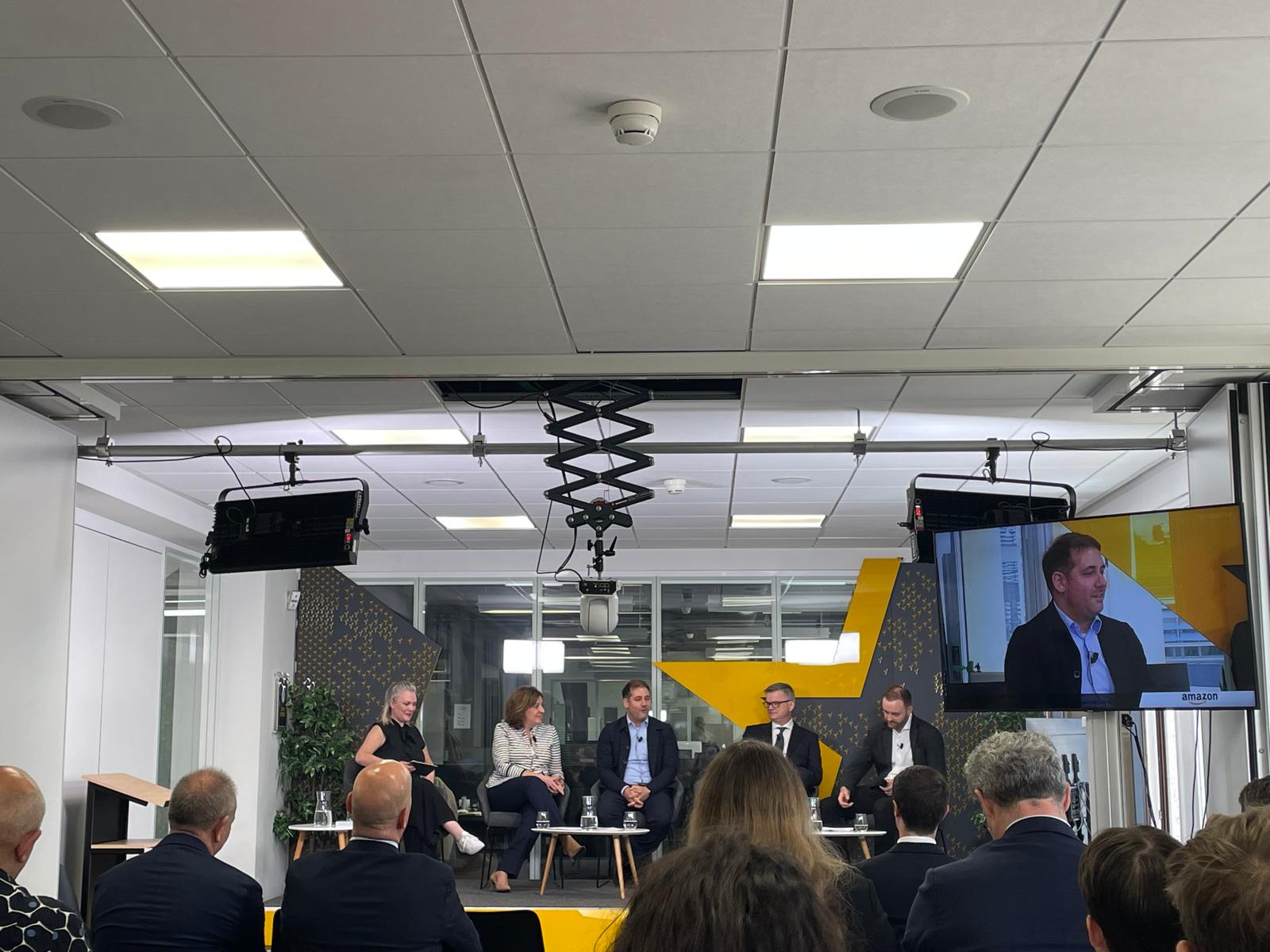On 14 May we attended an event co-hosted by Euractiv and Amazon, entitled “Media Partnership – Transformative Power of Investment in Rural and Post-Industrial Areas”, that took place on the premises of Euractiv. The aim of this event was to explore and discuss the future of the most depressed rural and post-industrial regions, seeking solutions for their economic and social revitalisation, without forgetting the need to carry out a sustainable and green transition.
The event started with some opening remarks made by the Special Advisor at the European Parliament on the Intergroup on Rural, Mountainous and Remote Areas & Smart Villages. During this intervention, an approach was made to the reality of rural areas, emphasising how they are usually left behind by their national governments, leading to the abandonment of these regions and generating a brutal discontent among their inhabitants as well as a loss of identity. During this speech, the advisor made reference to the recent report by Enrico Letta on the future of the single market regarding his idea of "freedom to stay" that citizens have, meaning that European citizens should not only have freedom of movement throughout the Union, but also the opportunity to be able to stay in their own communities. This clearly demonstrates the need for political institutions to confront the problem, create infrastructure, and attract investment to these areas to revitalise them.
Bearing in mind this emerging problem, the panel debate on the transformative Power of Investment in Rural and Post-industrial Areas took place. First, the Regional Minister of Economy, Business, and Employment of Castilla La Mancha (Spain), Patricia Franco Jiménez, highlighted the need to strengthen the economy and industry in rural areas, so as to offer the same services as those guaranteed in urban areas. An example of good practice in their attempt to reindustrialise the region in a sustainable way is the incentivisation of SMEs. She mentioned that this way economic growth is generated and, consequently, the economic and social ecosystem is improved, enhancing the aforementioned “freedom to stay”. Additionally, she stressed the need to attract companies, citing the example of Amazon's arrival in the municipality of Illescas and the positive impact this has had on the revitalisation of the region. The mention of public investment in renewable energy as a means to attract foreign investors was particularly interesting.
Later, Mr Lausberg, from the European Policy Centre, further elaborated on this idea, highlighting the need to create economic conditions and quality jobs in the regions, encouraging people to stay. He underscored the need to make national, local, and regional funding more accessible, coordinated, and straightforward, ensuring more budget allocation for these initiatives. It was also very insightful how he framed the EU Green Deal as a great opportunity for regions to reinvent and sustainably reindustrialise themselves, while also generating attractive and quality jobs for citizens.
Mr Pattje, representing Amazon, explained their positive impact on local communities, presenting their warehouses in Illescas as an example. He discussed how companies improve the quality of life for local citizens by promoting job creation and infrastructure development. Furthermore, he outlined some of the features that attract private investment, such as access to highways and space for establishing large warehouses, which is undoubtedly enriching for regional stakeholders. As for the fourth panellist, Mr Jularic, representing the region of North Rhine-Westphalia, emphasised the need for regional governments to engage in this sustainable economic transition, placing special importance on the necessity to tailor strategies to the realities of rural communities.
The event concluded with some closing remarks by Matteo Miglietta, from the Committee of the Regions, who highlighted the importance of cohesion in EU investment policy, ensuring that investments address the specific needs of regions and cities. He highlighted the importance of involving regions more deeply in the investment process and adopting a more inclusive approach to industrial transitions, if we are to avoid leaving some anyone behind.
